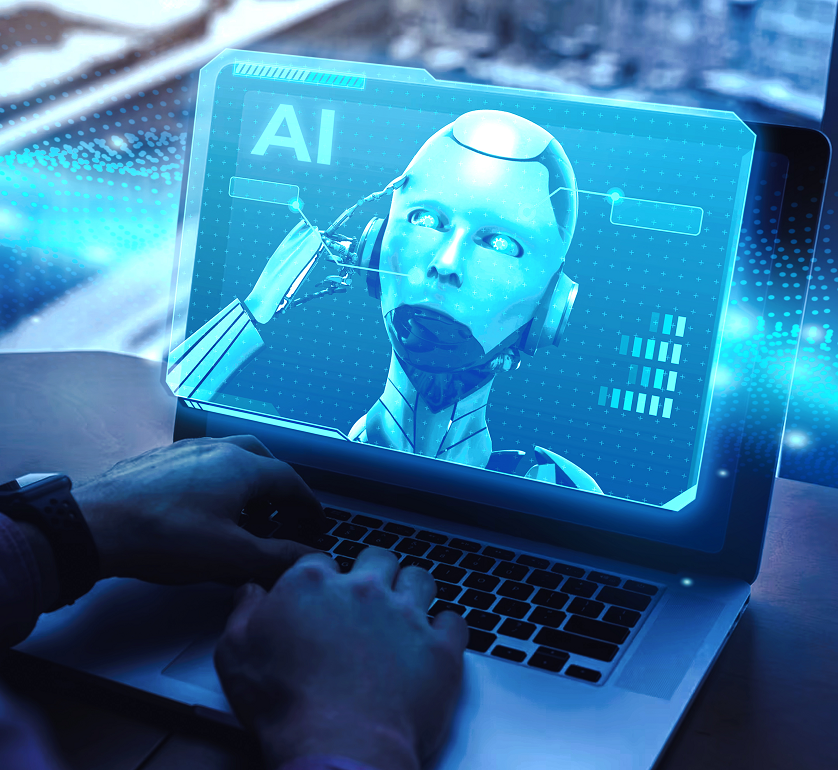The Dynamic Impact of Artificial Intelligence on Branding
In an era marked by relentless innovation, it’s no wonder that Artificial Intelligence (AI) is making a significant impact on industries at large. One area undergoing a substantial transformation is branding. With the ongoing evolution of AI, its role in shaping how businesses create, sustain, and enhance their brands is becoming more and more conspicuous.
What is Artificial Intelligence?
Artificial Intelligence (AI) is the development of computer systems that can perform tasks requiring human-like intelligence. These tasks include learning, reasoning, problem-solving, understanding natural language, and perception.
Google Translate uses AI to understand and translate text from one language to another, facilitating global communication. Businesses use AI-powered chatbots on websites to interact with customers, answer queries, and provide assistance, enhancing customer support.
Artificial Intelligence (AI), the technological marvel of our era, represents the simulation of human intelligence in machines. From learning and problem-solving to speech recognition and decision-making, AI empowers machines to imitate human cognitive functions. As the cornerstone of innovation, AI is not just reshaping industries but also
transforming the way we live, work, and interact with the world around us.
Personalization at Scale:
AI algorithms have elevated the level of personalization brands can offer. From predictive analytics to machine learning algorithms, brands are now equipped to analyze vast amounts of data to understand consumer
behavior. This enables them to tailor marketing messages, products, and experiences to individual preferences. The result? Consumers feel a deeper connection with brands, leading to increased brand loyalty.
Netflix utilizes AI algorithms to analyze user viewing habits and preferences. The platform then provides personalized recommendations for movies and TV shows, creating a highly individualized user experience. This personalization strategy has contributed significantly to customer retention and satisfaction.

Data-Driven Decision Making
AI and branding has ushered in an era of data-driven decision-making. Brands can now leverage AI to analyze consumer data, market trends, and competitor strategies in real-time. This not only streamlines decision-making processes but also allows brands to stay agile in a rapidly evolving market. The ability to adapt swiftly to changing consumer preferences is a key factor in maintaining a competitive edge.
Amazon leverages AI to analyze vast amounts of customer data, including purchase history, browsing behavior, and demographic information. This data-driven approach informs decisions on product recommendations, pricing strategies, and inventory management, allowing Amazon to continuously optimize its offerings based on real-time insights.
Chatbots and Customer Engagment:
The rise of AI-powered chatbots has transformed customer engagement. Brands can provide instant, personalized assistance to customers, enhancing their overall experience. Whether it's answering queries, providing product recommendations, or offering troubleshooting solutions, AI-driven chatbots ensure that customer interactions are not only efficient but also tailored to individual needs.
Starbucks employs a virtual assistant, known as the "Barista Bot," on its mobile app. Customers can interact with the chatbot to place orders, ask questions about menu items, and receive personalized recommendations. This AI-driven chatbot enhances customer engagement by providing a convenient and efficient way for users to interact with the brand.
Creativity Unleashed:
Contrary to the fear that AI might replace human creativity, it has become a powerful tool for enhancing it. AI algorithms can analyze vast datasets to identify emerging trends, consumer sentiments, and cultural shifts. This information can then be used to inform creative strategies, ensuring that branding efforts resonate with the target audience. AI doesn't replace human creativity; it amplifies it by providing insights that might otherwise go unnoticed.
Adobe Sensei is an AI platform integrated into Adobe's creative software suite. It helps designers and marketers by analyzing data to identify design trends, automate repetitive tasks, and even suggest creative elements based on user preferences. This allows creative professionals to focus on higher-level tasks while AI enhances the creative process.
Hyper-Personalized Content Creation:
AI has entered the realm of content creation, generating
hyper-personalized content tailored to specific audience segments. From dynamic advertisements to personalized product recommendations, AI algorithms analyze consumer data to deliver content that resonates on an individual level. This level of personalization not only enhances the consumer experience but also increases the effectiveness of marketing
campaigns.
Spotify uses AI algorithms to curate personalized playlists for users based on their listening history, preferences, and even the time of day. The "Discover Weekly" playlist is a prime example, automatically generating a unique playlist for each user every week. This hyper-personalized content keeps users engaged and encourages them to explore new music within the platform.
Conclusion
The ever-changing marketing landscape reflects the profound influence of artificial intelligence on branding dynamics. As brands increasingly leverage AI capabilities, the synergy between technology and branding is poised to evolve further. Beyond being a mere efficiency tool, AI stands as a potent catalyst for driving innovation and fostering creativity. Brands adept at embracing and navigating this dynamic landscape are positioned to lead the charge in revolutionizing the future of branding.


